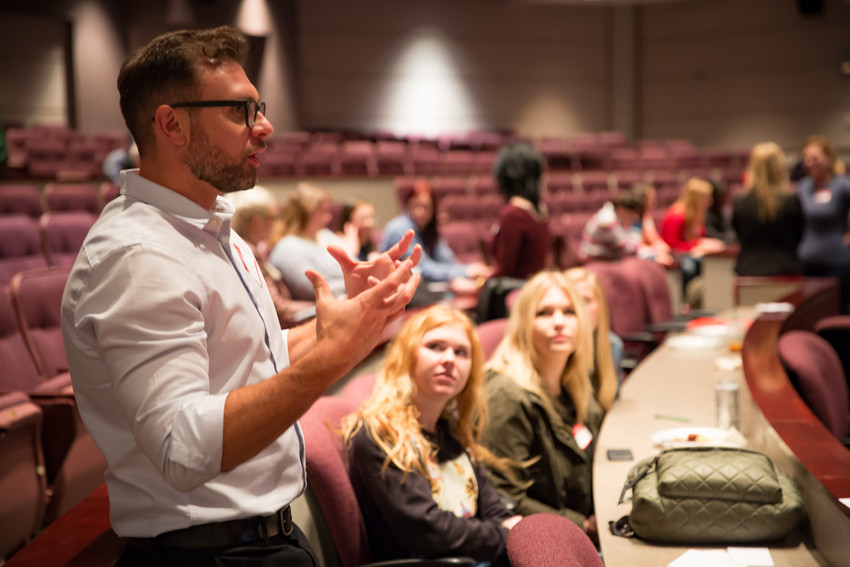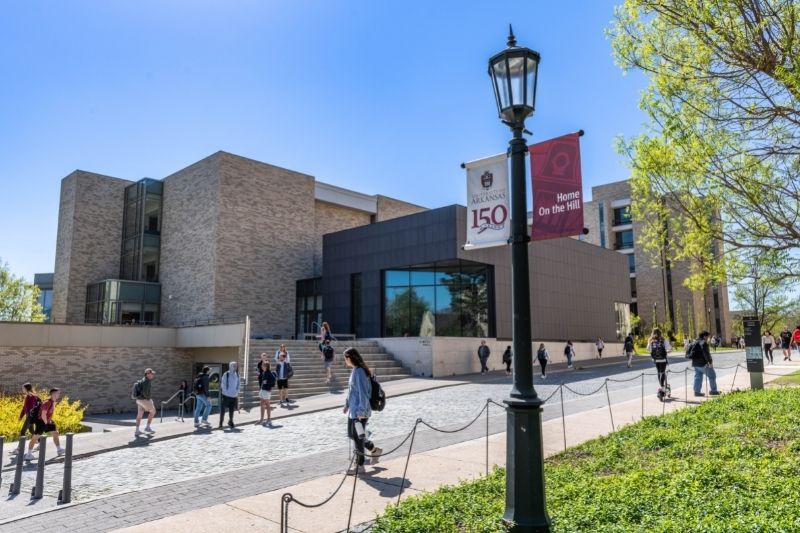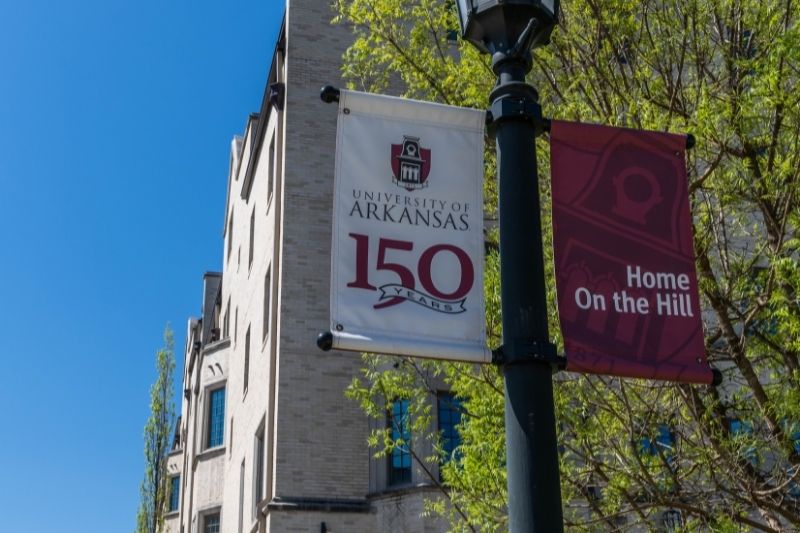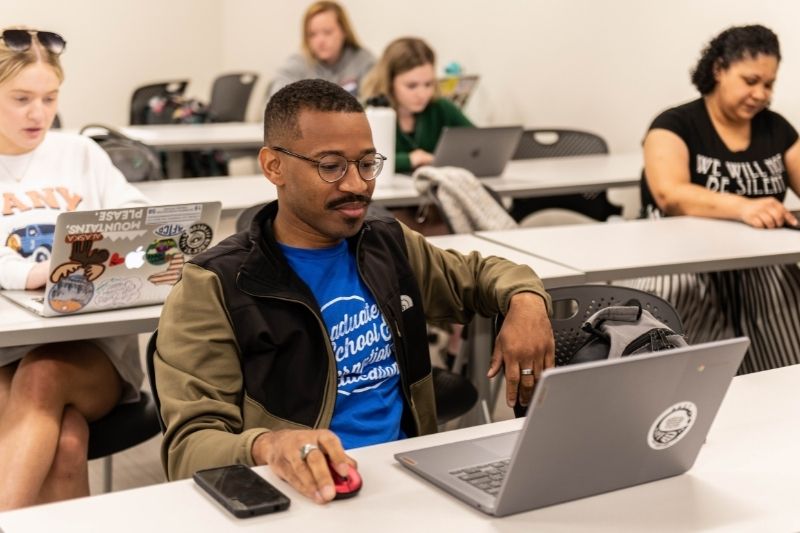About the School
The School of Journalism and Strategic Media (SJSM), formerly the Lemke Journalism Department, ranks among the elite, fully accredited J-schools in the country. SJSM is one of the largest undergraduate programs in the Fulbright College of Arts and Sciences at the University of Arkansas with more than 900 enrolled students.
Students in our degree programs receive instruction, guidance and hands-on experience both in the classroom and out in the field. SJSM works hard to ensure all students have access to scholarships, internships, interactive projects and inclusive student media on their path to becoming media professionals.
Our faculty members are accomplished, seasoned professionals in their fields who are actively engaged in scholarship for the media disciplines they teach. The SJSM faculty includes members of the press who've spent years on staff major national newspapers, a former White House correspondent, an Associated Press correspondent who covered the U.S. Supreme Court, three Emmy award winners for documentary, the manager of the National Public Radio station for Northwest Arkansas and more. Our advertising/public relations faculty conducts extensive research to publish on topics ranging from international advertising issues in Ghana to advertiser marketing to children.
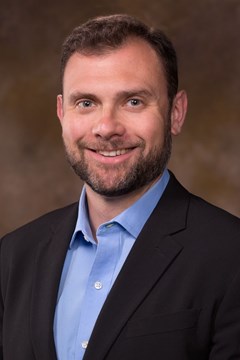
Bret Schulte
Director
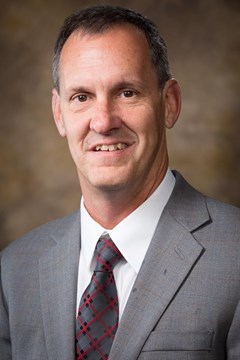
Dave Bostwick
Associate Director
Our Mission
The School of Journalism and Strategic Media at the University of Arkansas prepares students to be ethical media professionals and scholars in the digital world. The faculty is engaged in scholarly and professional pursuits, bringing fresh approaches to challenges faced by media.
Our students gain conceptual knowledge and practical skills from a curriculum that emphasizes critical thinking and mastery of state-of-the-art technology. Students learn the importance of including voices from all backgrounds and perspectives in pursuit of accurate coverage of our pluralistic society.
SJSM strives to empower aspiring media professionals and to educate the public with the skills to verify information as factual. SJSM faculty, students and graduates foster truth, accuracy, and credibility in the evolving landscape of news and strategic media. In our role as custodians of the Fourth Estate, we promote media literacy by equipping industry professionals and news consumers with tools to recognize and refute disinformation.
The key areas of focus for most of us were:
- Assessing the quality and motives of sources and clients
- Understanding misinformation, disinformation, deep fakes and fake news
- Developing critical thinking skills for media analysis
- Ethical responses to real-world, on-the-job issues
- Developing fact-checking & reporting skills
We define media literacy as …
The ability to understand and create media thoughtfully by upholding professional and ethical standards, regardless of the complex systems that media professionals work within. To be media literate, one must access, analyze, evaluate, and distribute accurate information across a wide variety of technological and social contexts in journalism and strategic communications.
Our curriculum goals for media literacy are …
- To support students' ability to reliably and regularly access and evaluate accurate information across media professions. (fact-checking)
- Provide students with the historical and social context to understand media technology, their profession, and their work as part of a larger media ecosystem. (historical & contextual frameworks)
- Promote avenues for students to slow down and reflect deeply on their process and decision-making as both media professionals and consumers. (reflexive process)
- To develop students' understanding of the nuances and current issues surrounding media ethics and laws. This understanding is crucial as it directly affects their industries, making them responsible and ethical media professionals. (law & ethics)
- To increase student awareness of changes in technology and its wide-reaching effects across the environment, labor, audiences, and information distribution. By providing them with the skills needed to be adaptive leaders within media professions, we aim to make them feel prepared and confident in the face of technological changes. (technology’s effects)
Facilities
SJSM houses a state-of-the-art student media center, editing stations and latest in media technology at Kimpel Hall. Students, faculty and staff have access to the best in equipment, media resources, and classroom and meeting space.
ACEJMC Accreditation
SJSM is an accredited journalism program under the Accrediting Council on Education in Journalism and Mass Communications (ACEJMC). Learn more about the ACEJMC core values we uphold and key figures from our program.
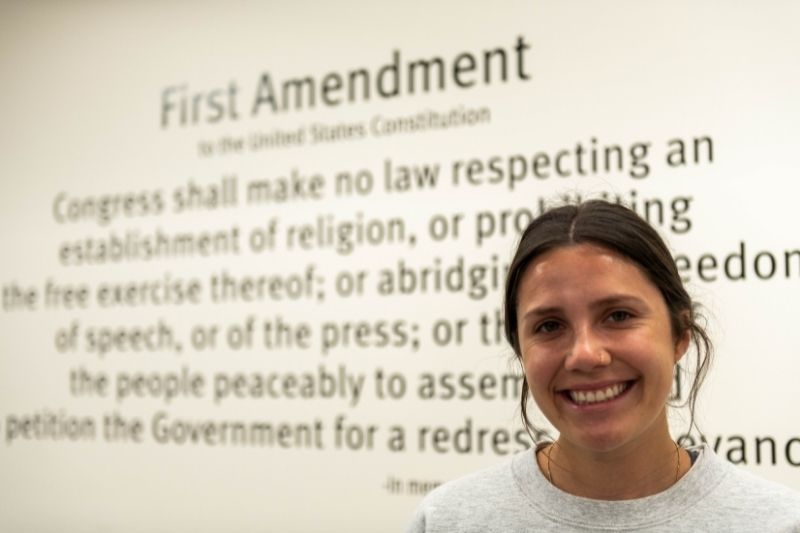
Strategic Plan
SJSM is proud to present our strategic plan which showcases our quarterly goals, timelines for action and a solid vision for our future.
Outreach & Inclusive Excellence Plan
SJSM is committed to a diverse learning and work environment that benefits our students, faculty, staff and the communities our next generation of journalists and media creators will reach.
